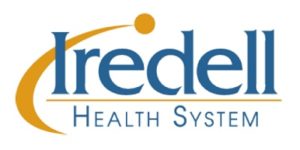
Special to IFN
Many people shy away from discussing topics like colonoscopies and gastrointestinal concerns. This is part of the reason why colorectal cancer is the fourth most common cancer in the United States.

Surprisingly, it’s also one of the most preventable cancers.
Dr. Venu Gangireddy, gastroenterologist at Piedmont HealthCare who performs procedures at Iredell Memorial Hospital, recently discussed risk factors, treatment, and prevention of colorectal cancer.
Q: What is colorectal cancer?
A: Cancer is an abnormal growth of cells in the body that can cause tissue destruction. Your colon and rectum are the last portion of your GI tract. This is also called your large intestine. If there is an abnormal growth of cells in the colon or rectum, it leads to colorectal cancer.
Q: How common is colorectal cancer?
A: Colorectal cancer is the fourth leading cause of cancer and the second leading cause of cancer death here in the U.S. Our lifetime risk of having colorectal cancer is around 4 percent. To put it in a different perspective, our risk of a motor vehicle accident death is around 1 percent.
Q: How preventable is colorectal cancer?
A: Around 85 percent of colorectal cancers can be prevented with appropriate screenings. There is a recent estimate from 1975-2020 that around 940,000 colon cancer deaths were prevented in the U.S., mainly from screening.
Q: What are the symptoms?
A: Unfortunately, most colorectal cancers are diagnosed in asymptomatic patients, but symptoms you should look for are rectal bleeding, unintentional weight loss, or a change in bowel habits. These symptoms need to trigger further investigation.
Q: What increases your risk?
A: Various things increase your risk, but age is a big one. As we grow older, the risk of colon cancer increases. This is why it’s important to start screening at the age of 45 for people with average risk. Tobacco, consuming alcohol, obesity, family history, and inflammatory bowel diseases also increase your risk.
Q: When should you start screening?
A: Forty-five is the age to start for people with average risk, but family history, especially first-degree family members, that have had colon cancer is a significant risk factor. If your first-degree relative (mom, dad, sibling) is diagnosed after the age of 60, you would start 20 years earlier at the age of 40. If they were diagnosed before 60, you would start screening 10 years before their age of diagnosis if it puts your screening before you turn 40. A good example is if your mom was diagnosed with colon cancer at 44, you would begin screening at 34. If your mom was diagnosed at 62, you would begin screening at 40.
Q: What does a colonoscopy involve?
A: Here are the steps:
• The patient does a “prep” regimen the day before the colonoscopy that cleans out the colon. This may be in liquid or pill form.
• The patient arrives at the endoscopy center and is put under sedation, rendering them unconscious for the procedure.
• The patient lies on their left side while a flexible, thin tube with a camera is inserted into the rectum, moving through the colon and examining for polyps and abnormalities. The entire procedure lasts 30 to 40 minutes.
• The patient is taken to a recovery area to rest until they are alert and conscious before discharge. They will need someone to drive them home.
Q: What does a colonoscopy detect?
A: When we screen for colon cancer, we are screening for polyps, or growths, in the colon. Eighty-five percent of the time, these pre-cancerous polyps develop into cancer. It normally takes about 10 years to develop into cancer, which is why it’s recommended to have a 10-year follow up after a normal colonoscopy to identify anything new that has happened. Colonoscopies are just one of the ways colorectal cancer is detected. Talk to your doctor about the best screening for you and about when it’s time to schedule a colonoscopy. Talk to your primary care provider about making an appointment with a GI specialist. It may just save your life.
About Iredell Health System
Iredell Health System includes Iredell Memorial Hospital; Iredell Davis Medical Center; Iredell Davis Behavioral Health Hospital; Iredell Mooresville; Iredell Home Health; Iredell Wound Care & Hyperbaric Center; Community and Corporate Wellness; Occupational Medicine; the Iredell Physician Network and more. Iredell Memorial Hospital is the largest and only nonprofit hospital in Iredell County. The comprehensive healthcare organization has 391 licensed beds; close to 2,000 employees; and has approximately 365 healthcare providers representing various specialties. Centers of excellence include Women’s and Children’s; Cardiovascular; Cancer; Surgical Services and Wellness & Prevention. The health system’s Iredell Mooresville campus is home to the area’s only 24-hour urgent care facility, as well as an ambulatory surgery center, imaging center, rehabilitation services, and physician practices. The mission of Iredell Health System is to inspire wellbeing. For a comprehensive list of services and programs, visit www.iredellhealth.org.



